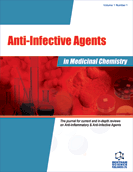Abstract
Helminths are responsible for numerous health problems in both animals and human around the world. In animals, they cause heavy losses in meat, milk and wool production. The only available mean for controlling the resulting diseases are currently treatments with anthelmintics. Unfortunately, many cases of drug resistance have emerged affecting most of the antiparasitic compounds. While attempts are made for finding new groups of drugs, efforts are also made for understanding the underlying mechanisms of drug resistance or reduced efficacy of anthelmintics. Among the mechanisms, the identification of alterations in drug transport, specifically in active transport due to protein transporters, has been the aim of several recent investigations. Mechanisms very similar to those responsible for failures in cancer therapy have been described. Many progresses in genomic analyses have been made, especially thanks to the model nematode Caenorhabditis elegans. A better knowledge of the role of these transporters in the efficacy of anthelmintics should conduct to the development of new strategies in antiparasitic therapy and the identification of effective and non-toxic inhibitors of the efflux pumps of helminths.
Keywords: Helminths, nematodes, trematodes, drug transport, p-glycoprotein, lipids
 15
15





















